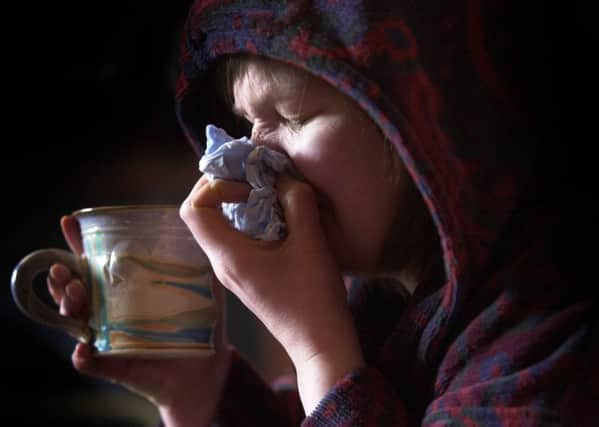Mammal molecule could hold key to curing cold, say Scots researchers


The team at Edinburgh Napier believe the peptide cathelicidin, which is also found in some fish and insects, may be able to kill rhinovirus, one of the most common germs associated with causing the cold.
According to studies at the university’s School of Applied Sciences, the antimicrobial peptide, part of the family known as host defence, has proven to be “incredibly effective” at destroying the influenza virus in the human immune system at a level comparable with current anti-influenza drugs.
Advertisement
Hide AdAdvertisement
Hide AdThe Napier team, led by Dr Peter Barlow, associate professor of immunology and infection and director of research at the university, say they have shown already that these peptides can kill a wide range of bacteria, fungi and viruses.
Dr Barlow said: “We found that cathelicidins from other animals such as pigs were very effective at killing this human virus, too, raising the prospect that peptides from the immune systems of other mammals could be employed to fight this infection.”
He added: “This is just the first step in a long path. Now we hope to modify these peptides to make them more stable and effective, not only against rhinovirus and influenza but also against other varieties of cold virus.
“So far all our work has only been at the lab bench, and against only one common strain of rhinovirus: the next step will be to progress into animal and finally human clinical trials.”
Dr Barlow said the researchers’ approach – along with others that also offer hope against the cold – is “probably about five to ten years from potentially producing a viable treatment”.
He warned, however: “When the day finally comes that science cracks the common cold, we will need to be extremely cautious. It is worth drawing a parallel with antibiotics: just as antibiotic resistance is an increasingly serious problem, the same thing can happen with viral treatments.
“It would therefore be unwise to start doling out the ‘cold cure’ to everyone who has a cold.
“Instead, I would suggest keeping for those who need it most, such as asthmatics and those with compromised immune systems. The rest of us will probably have to keep fighting off colds the slower traditional way – boxes of tissues, the body’s natural defences and lots of hot drinks.”
Dr Barlow describes his research in academic publication The Conversation.
It is estimated that as many as 400,000 days’ work are lost to colds and flu annually across the UK.